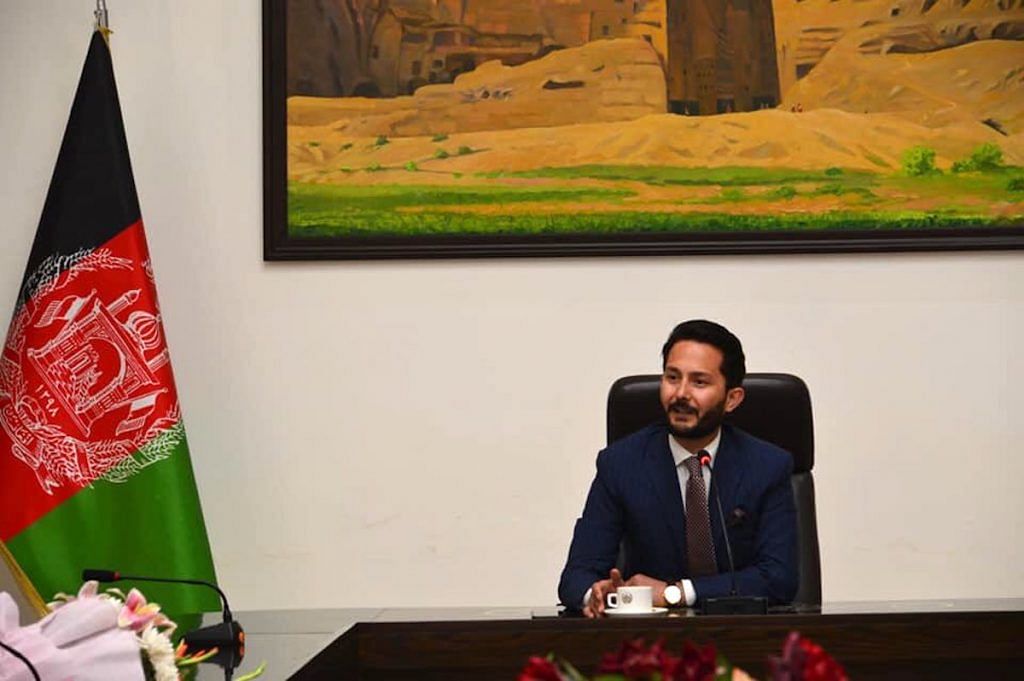New Delhi: The sudden breakdown of the US-Taliban peace talks last week seems to have come as a much-needed relief for the people of Afghanistan, who can now concentrate on the upcoming elections that is scheduled for 28 September, said Tahir Qadiry, Chargé d’Affaires at the Embassy of Afghanistan, Friday.
“This is a good break and good pause for all stakeholders to look into the negotiations so far (between US and Taliban). They were very scared all this time as to what would be the outcome and if that would last … Today the country is at a different juncture. The main concerns that the Afghan people have today is what’s next for Afghanistan because the players and stakeholders are too many,” Qadiry said.
He was speaking at a panel discussion ‘Options for Afghanistan: The Trump Tweets and After’ organised by the Centre for Policy Research in New Delhi, which was moderated by Jyoti Malhotra, National and Strategic Affairs Editor at ThePrint.
The envoy also said that the Afghan government is committed to holding elections because “that is the way forward”.
Qadiry added that it was up to the Taliban to integrate with the Afghan community and not the other way round. He, however, said there are certain “red lines” which the Taliban has to follow if it is serious about integration — some of these include women’s rights and freedom of expression.
“We are holding the elections on 28 September. The Afghan negotiators are all ready for the intra-Afghan dialogue but the Taliban has to be ready. There’s a generation there in Afghanistan that believes in a bright future,” he said.
Also read: Taliban threats loom but Afghanistan to go ahead with election on 28 September
‘Don’t think Taliban has changed’
On the role of Pakistan — which had facilitated the talks between the US and the Taliban — Qadiry said that Kabul still remains concerned about the cross-border insurgency being fanned by Islamabad.
“We are integrating with the Taliban but they are not. The new generation is not stuck in history. They are connected with the world. The Taliban needs to come out and say that they have changed. But I don’t think they have changed because they still resort to violence. On what basis will Taliban accept the Constitution?” he asked.
Jayant Prasad, former Ambassador of India to Kabul, said the intra-Afghan dialogue, which the Afghan government was keen to pursue with the Taliban, will happen only when the US is able to completely pull out its troops from there.
Prasad, who is also a former director general at the Institute for Defence Studies and Analyses, also stated that negotiations between the US and Taliban will “quickly resume” and this was only a temporary pause.
“The people there want an end to violence. There has to be more pressure, more cajoling of Pakistan as it remains crucial for Afghanistan’s future. But to expect Pakistan to behave well is difficult but without them in the room it will be difficult to have peace for what happened in the past,” he said.
Amar Sinha, who had also served in Afghanistan as India’s envoy and later became secretary at the Ministry of External Affairs before his retirement, also agreed that the talks will begin soon between the US and the Taliban.
“This was the global war on terror. It is their responsibility. It is now driven by the political calendar. We have to understand that the talks are basically between US and Pakistan. Taliban is just a front,” Sinha added.
‘Afghanisation of security forces’
Saad Mohseni of the MOBY Group, a Dubai-based media company, said the breakdown of talks — which was announced by President Donald Trump Sunday — came as a “setback” for Zalmay Khalilzad, a US special representative for Afghanistan reconciliation, who was Trump’s point person to conclude the peace deal.
Meanwhile, Gautam Mukhopadhaya, former Indian Ambassador to Afghanistan, also questioned the legitimacy of the peace process, which was being spearheaded by the US, as it did not have an official authorisation from the Afghan government headed by President Ashraf Ghani.
Mukhopadhaya also advised an “Afghanisation” of its security forces and less dependency on international troops. In this aspect, Mukhopadhaya said, “Afghanistan can follow some of the South Asian models of running robust armed forces in relatively smaller budgets.”
Also read: India should lobby for Afghan govt on Taliban peace talks, says envoy
